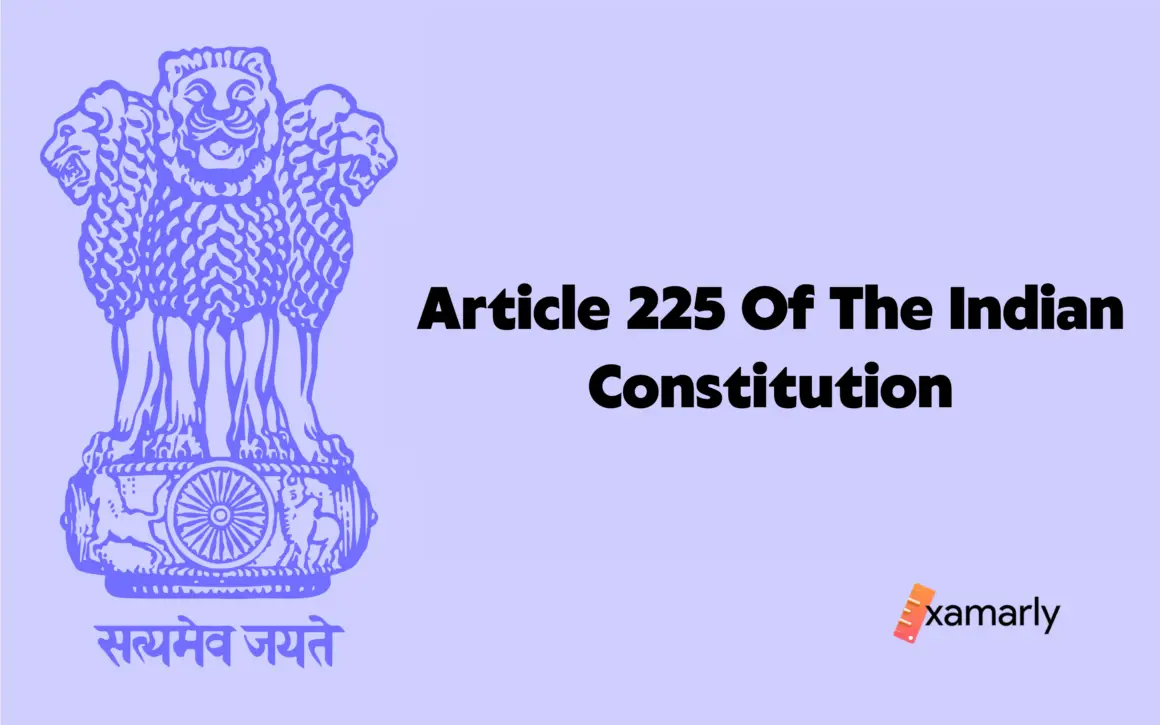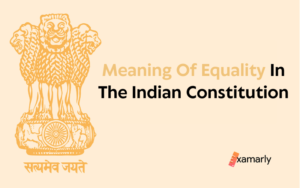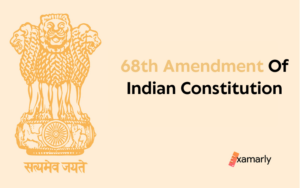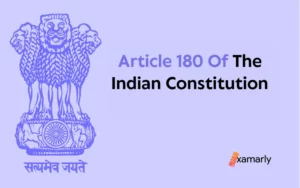Article 225 of the Indian Constitution talks about the jurisdiction of existing High Courts that are related to the provisions that are made with the powers authorised to the legislature by the constitution of India.
It also talks about some important aspects of the legislature related to exercising the powers and the restrictions.
Let us dig deep into Article 225 of the Indian Constitution and grasp all the concepts encompassed in this Article.
What Does Article 225 Of The Indian Constitution Say?
225. Jurisdiction of existing High Courts Subject to the provisions of this Constitution and to the provisions of any law of the appropriate Legislature made by virtue of powers conferred on that Legislature by this Constitution, the jurisdiction of, and the law administered in, any existing High Court, and the respective powers of the Judges thereof in relation to the administration of justice in the Court, including any power to make rules of Court and to regulate the sittings of the Court and of members thereof sitting alone or in Division Courts, shall be the same as immediately before the commencement of this Constitution: Provided that any restriction to which the exercise of original jurisdiction by any of the High Courts with respect to any matter concerning the revenue or concerning any act ordered or done in the collection thereof was subject immediately before the commencement of this Constitution shall no longer apply to the exercise of such jurisdiction
The clause in Article 225 of the Indian Constitution talks about the Authority of the Present-Day Supreme Courts.
It says that any existing High Court’s jurisdiction, the law administered in there, and the respective powers of the Judges over there with respect to the administration of justice in the Court, All judicial powers, including the authority to establish rules of Court and to regulate the Court’s sittings and the conduct of its members, are subject to the provisions of this Constitution and to any law enacted by the appropriate Legislature in the exercise of powers conferred upon that Legislature by this Constitution.
It also says that except as otherwise provided in this Constitution, the High Courts shall have original jurisdiction over all matters relating to the Revenue or including any act ordered or done in the collection thereof.
Summing Up
We can conclude from Article 225 of the Indian Constitution that the Indian Constitution talks about the authority of the present-day Supreme Courts. It says that any existing high court’s jurisdiction, the law administered there, and the respective powers of the judges over there with respect to the administration of justice in the Court.
The High Courts have original jurisdiction over all matters pertaining to the Revenue, including any act ordered or performed in connection with its collection.
Related – Article 224 Of The Indian Constitution
FAQs
What does Article 225 say?
The High Court has rule-making authority under Article 225 of the Indian Constitution for its own proceedings and related matters, and the Chief Justice of the High Court has rule-making authority under Section 28 of the RTI Act for implementing the provisions of that law.
Who has the power to strike down a law in India?
Judicial review means that the courts can strike down a particular law passed by Parliament. When the legislatures of two or more states pass resolutions requesting the Parliament to enact laws on a matter in the State List, then the Parliament can make laws for regulating that matter.






